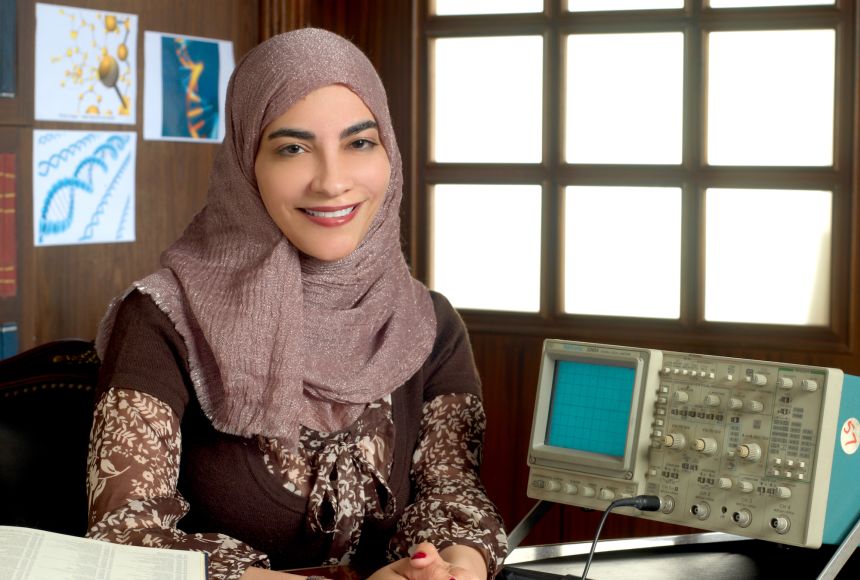People in developing regions often have less access to proper healthcare resources and technology. Using innovative science and her background in biotechnology, National Geographic Explorer Dr. Hayat Sindi is working to change this and other problems around the world.
Sindi is from Makkah, Saudi Arabia, where women have long lacked the same access to education as men (although this has improved over the past few decades). However, she grew up in a household that supported her education. “Having been raised in Saudi Arabia, I was fortunate to get this strong foundation of self-belief,” she said. “My culture, my family, and my faith have all contributed to that foundation. I had a father who could teach me anything I wanted,” Sindi told Entrepreneur Middle East.
Working to advance science education—especially among young women—and biotechnology in developing regions became Sindi’s main goals.
Work and Achievements
Sindi studied at King’s College London, the Massachusetts Institute of Technology, and Harvard University. She received her PhD in biotechnology from Cambridge University in 2001. In doing so, Sindi became the first woman from the Persian Gulf to receive a doctorate. This was one of the first ways that she started to break down barriers for women in the Middle East.
Sindi cofounded a non-profit in 2007 called Diagnostics for All. Sindi helped create low-cost devices that can be used in developing countries to help diagnose diseases. To this end, she has invented a biochemical sensor that features thermoelastic probes, and she created the Magnetic Acoustic Resonance Sensor (MARS), both of which help diagnose illnesses quickly and on-site. In 2011, Sindi founded another organization, the Institute for Imagination Ingenuity (i2institute), which strives to encourage science education and innovation in younger generations.
In 2012, Irina Bokova, the Director-General of the United Nations Educational, Scientific and Cultural Organization (UNESCO), selected Sindi as a Goodwill Ambassador to encourage education, especially among young women, in STEM fields. Sindi was selected “in recognition of her work to create an ecosystem of entrepreneurship and social innovation for scientists, technologists and engineers in the Middle East and beyond, her efforts to bring the youth closer to innovators and her dedication to the ideals and aims of the organization,” according to a UNESCO press release.
In 2013, just three years after she received her doctorate degree, Sindi became one of the first thirty women selected to be on the Shura Council, which is Saudi Arabia’s highest consultative body. The main job of this council is to “advise the King on issues that are important to Saudi Arabia,” according to the Embassy of the Kingdom of Saudi Arabia.
Currently, Sindi works at the Islamic Development Bank (IsDB) in Saudi Arabia as a senior advisor to the Islamic Development Bank’s President of Science, Technology and Innovation. Every day, Sindi works to empower young women and Arab women to pursue their dreams. Sindi believes in the power of science, technology and innovation to solve some of the world’s most pressing development challenges. In 2018, she launched the IsDB’s 500 million dollar Transform Fund to support innovators find solutions to development challenges through the power of innovation, the first digital hub of its kind for the developing world.
“If anything, I would like to think that I have inspired girls to pursue a career in science if that is what interests them. I advocate thinking outside the box, if one’s situation is tough, in favor of their ambitions,” Sindi said in an interview with UNESCO.
